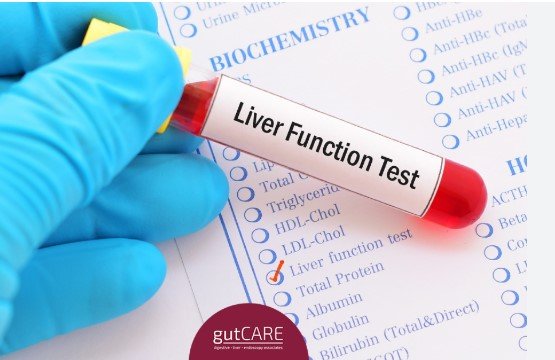Why Do You Need a Liver Function Test?

The organic liver is one of the major organs that has vital roles in all body functions, such as detoxifying hazardous substances, producing bile for digestion, storing energy, and regulating the level of cholesterol in the body. Dysfunction of this vital organ is quite significant to health.
But how will you know that your liver is functioning well? You can keep track of how a liver function test monitors health. This is why you need an LFT: what it tells about your health and why you might need to go through one.
What is a Liver Function Test?
A liver function test is a blood test that measures the levels of various enzymes, proteins, and substances produced or processed by the liver. These measurements help judge how healthy your liver is and whether it has suffered damage or disease.
The test typically includes measuring the levels of liver enzymes like alanine aminotransferase (ALT), aspartate aminotransferase (AST), alkaline phosphatase (ALP), and gamma-glutamyl transferase (GGT). In addition, proteins like albumin and bilirubin are measured to evaluate liver function.
When your liver is doing fine, these substances exist in a fair balance in your blood. However, if your liver is inflamed, damaged, or stressed out, the levels of these substances can either rise or decline, which probably indicates a problem. The LFT is a very effective way to detect early signs of liver disease, which can be effectively managed by early intervention and treatment.
Top 8 Signs You Might Need a Liver Function Test
Indeed, a liver function test may be considered an essential formal test, but you’re often alerted by the signs that tell you when you ought to seek testing. Here are eight broad signs that would support a decision to have a liver function test:
- Unexplained Fatigue
Fatigue is a common symptom that can be caused by many health conditions, but it can also indicate a compromised liver. Most of the time, our livers are overwhelmed with the detoxification process; thus, with increased disease, they won’t be able to detoxify efficiently, resulting in feelings of tiredness and energy depletion. A liver function test may determine whether the cause of unusual tiredness is really due to inefficient liver functionality if someone usually complains of fatigue even with enough sleep.
- Yellowing of the Skin or Eyes (Jaundice)
Another visible symptom of any liver problem is jaundice, or, in layman’s terms, yellowing of the skin and the whites of the eyes. This occurs when the liver fails to process bilirubin, a yellow pigment formed from the weakening of red blood cells. When excess bilirubin is dissolved in the body’s fluid, it imparts a yellow color to the skin and eyes. If you notice this condition, you should undergo a liver function test for possible liver conditions such as hepatitis or cirrhosis.
- Swelling or Pain in the Abdomen
The liver is an organ that pretty much hangs in the upper right side of the abdomen. Some conditions, such as fatty liver disease, liver injury, or cirrhosis, can cause enlargement or inflammation in the liver, thereby inducing pain or discomfort in the abdomen. Another possible complication of liver-related diseases is fluid accumulation in the abdomen (ascites), which causes visible bloating in the tummy. The return of abdominal pain and swelling should prompt an individual to take medical advice and to ask for liver function tests to determine the health status of his or her liver.
- Dark Urine or Pale Stool
Changes in urine and stool color may point to liver concerns. Dark urine is usually caused by excess amounts of bilirubin in the bloodstream that the kidneys try to excrete. Conversely, feces that are too pale or clay-colored result from diminished bile production by the liver for proper digestion and, hence, normal-colored stool. It may be time for a liver function test if you have either of these two changes.
- Nausea or Vomiting
Chronic nausea or vomiting could indicate a liver problem, especially when accompanied by jaundice or abdominal pain. The liver is used to perform some digestion functions, which, when failing, lead to digestive disturbances. The patient should see a health care provider to carry out a liver function test that rules out most possible liver disease if symptoms persist and worsen.
- Unexplained Weight Loss or Loss of Appetite
The liver plays many roles in metabolism-the storage of and fuel from food. Damage to the liver can affect how food is properly digested, resulting in loss of appetite or sometimes unexplained weight loss. When these symptoms occur without any clear cause, a liver function test may be required to confirm whether liver disease is the underlying reason. In some cases, your healthcare provider may recommend additional tests, such as a prolactin test, to rule out hormonal imbalances that can indirectly affect liver function
- Chronic Alcohol Consumption
Heavy drinking can cause serious liver injury. Alcohol can get one from fatty liver disease to inflammation of the liver and cirrhosis over time and interfere with the proper functioning of the liver. If you’re a heavy or regular drinker, you’ll possibly need a liver function test to know the state of your liver so as to find any damage in its early alarming stage.
- Family History of Liver Disease
If there is a history of liver disease such as hepatitis, cirrhosis, or liver cancer in your family line, you may have a predisposition towards developing similar diseases. In these cases, regular liver function testing becomes vital for early detection and prevention. Therefore, if you’re at higher risk because of any genetic or family history of liver conditions, a liver function test would prove useful in helping you keep your liver health in check and possibly even catch any issues before they advance dramatically.
Read also: Why Sourdough Bread Is the Ultimate Choice for Healthy Sandwiches in Sydney
The Final Words
The liver is one of the important organs in the body and regular assessment is important to keep the function in check. Liver function test is one of the easiest tests to be done to evaluate the health of your liver and to find any problems early. Know all the signs of liver dysfunction and talk to your healthcare provider before any serious complications arise.






